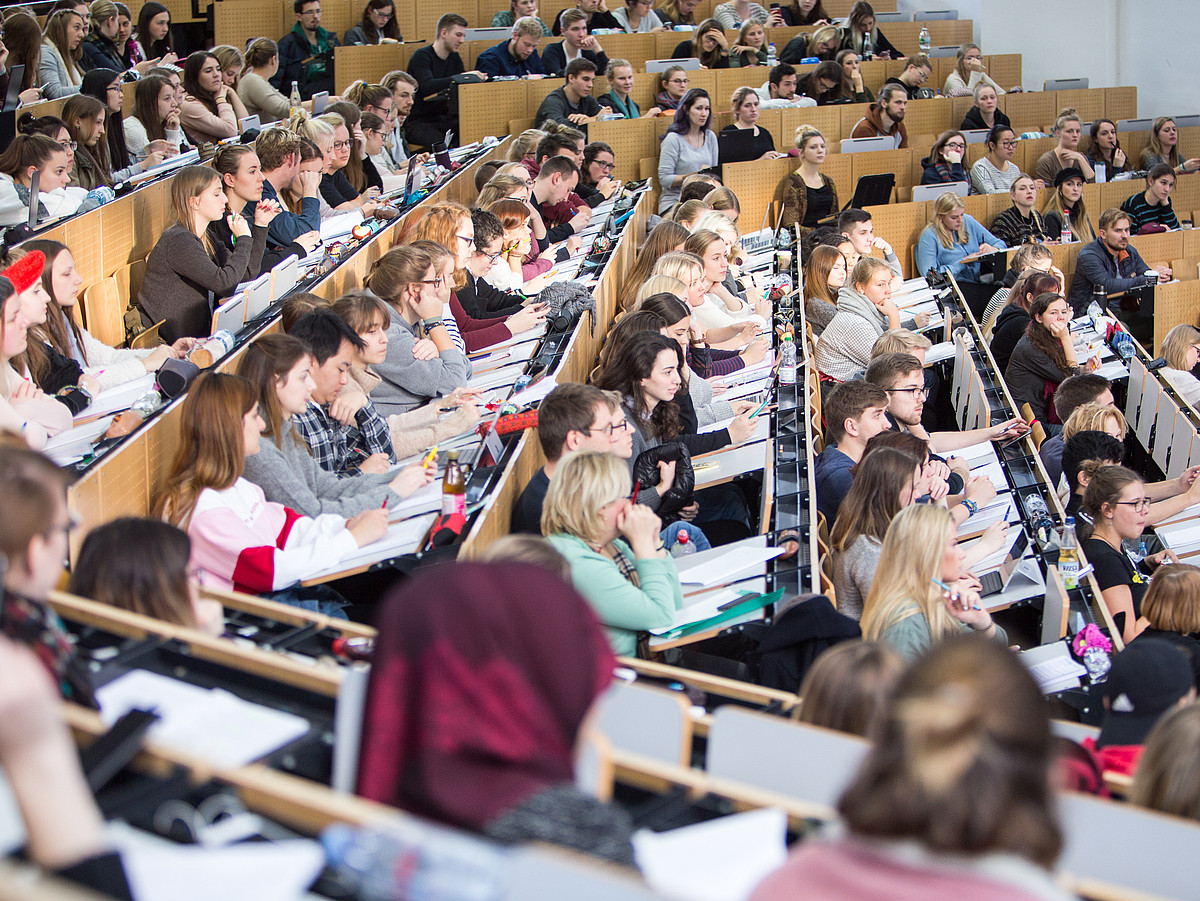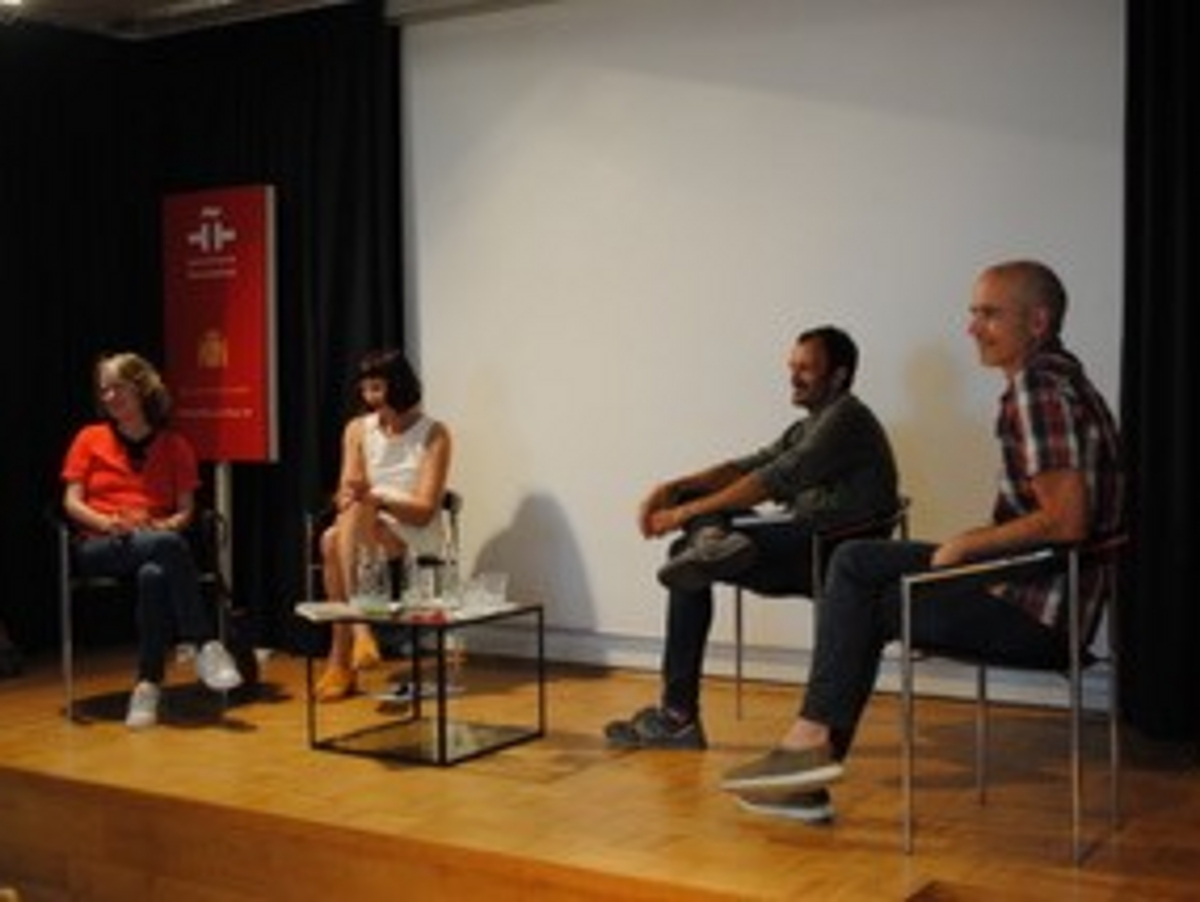Studiengangsbeschreibung
The Bachelor program Hispanic Studies equips students with sound foundation knowledge in the Spanish language and Spanish literature, as well as foundation knowledge concerning the history of the hispanophile countries.



Fachbereich 10
Hispanistik/Spanisch (Bachelor)


Abschluss
Bachelor of Arts (B.A.)
Regelstudienzeit
6 Semester
Unterrichtssprache
German
Bewerbungszeitraum Erstsemester
winter semester: 01.05 - 15.07.
summer semester: 01.12. - 15.01.
Zulassungsbeschränkt
Fachwissenschaftlicher Bachelor wählbar als
Bachelor Lehramtsfach für
The Bachelor program Hispanic Studies equips students with sound foundation knowledge in the Spanish language and Spanish literature, as well as foundation knowledge concerning the history of the hispanophile countries.
Alle Profil- und Komplementärfächer können kombiniert werden. Angeboten werden folgende Komplementärfächer:
Hinweise zum überschneidungsfreien Lehrangebot
Hinweise zum überschneidungsfreien Lehrangebot
Allgemeine oder fachgebundene Hochschulreife (z.B. Abitur, Einstufungsprüfung).
Infos zum Studium ohne Abitur
Spanish B1
Students choose between three courses:
Profilfach (major course), Komplementärfach (minor course) or Lehramtsoption (teacher-training course).
The program imparts foundation knowledge in the disciplines of linguistics, literary science and area studies.
The main focus of the program thus lies on the Spanish language, including its different national and regional variants, past and present Spanish-language and literatures, as well as the history and cultures of Spain and the Hispanoamerica countries.
Furthermore, Spanish writing and spoken language skills are systematically trained in special language courses. These comprise approx. one quarter of the studies.
Description of the modules.
Students choose between three courses:
Profilfach (major course), Komplementärfach (minor course) or Lehramtsoption (teacher-training course).
Students choose between three courses:
Profilfach (major course), Komplementärfach (minor course) or Lehramtsoption (teacher-training course).
In the Profilfach the students specialize in the Spanish scientific disciplines or study another Romance language (French, Portuguese or Italian).
In the teacher training course (Spanish didactics) the program runs as follows:
FD1 Basic module Spanish didactics (4th semester) In this module the theoretical foundations of the communicative foreign language classes are introduced. Subject of discussion are functional-, communicative, intercultural and methodological competences as well as language devices.
The module FD2 ("Aufbaumodul") Spanish didactics (5th semester) as well as a practical phase in the context of a didactical school-internship.
Teaching practice (Lehramt)
Student majors must undertake a compulsory work placement during their first-stage studies (does not apply to students studying for Lehramt); students may elect to undertake an additional work placement during their first-stage studies.
It is compulsory for student majors to complete a six month course of studies abroad. Students studying two foreign languages can complete in one of their two subjects an optional 4 month period abroad (can be divided in max. 4 parts)
School-internships abroad will be credited.
It is recommended that students undertake the semester abroad in their 3rd semester.
A good command of the Spanish language as well as knowledge of the Spanish-speaking countries and their cultures are prerequisite for many careers in the economy, especially in transnational companies or export-oriented enterprises, as well as in other branches with a strong international orientation (e.g. tourism or logistics and transport, companies specialised in international projects and event management, consulting firms serving transnational companies, etc).
Furthermore, graduates can choose between a wide range of career opportunities in purely academic or academically oriented occupational areas, such as publishing and librarianship, journalism in the printed media, radio or television, the theatre and museums, in international organisations (e.g. UNESCO, GTZ, DAAD), the diplomatic service, in non-governmental organisations (NGOs), foundations, etc.
Knowledge of the Spanish language and culture is also a prerequisite for many occupations in the purely academic field and other academic disciplines, such as studies in history, for instance, politics and sociology, philosophy, as well as studies in music and art. In these areas, Spanish is often the language providing direct access to historical sources or important original manuscripts.
Above all, though, the BA programme Spanish/Hispanic Studies provides the basis for a future career as a teacher of the Spanish language.
Das Zertifikatsstudium Grundlagen Digitaler Medien in pädagogischen Kontexten, ist ein studienbegleitendes Zusatzangebot im Rahmen von Studien mit pädagogischer Ausrichtung.